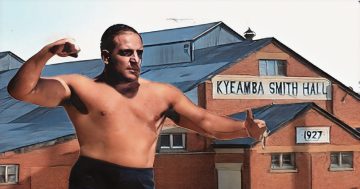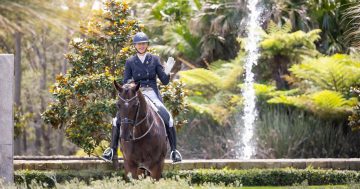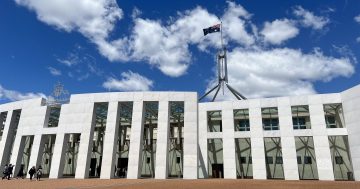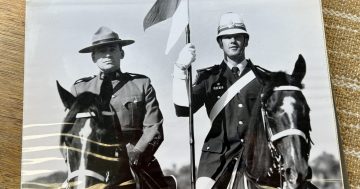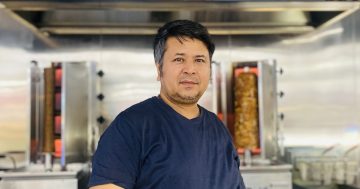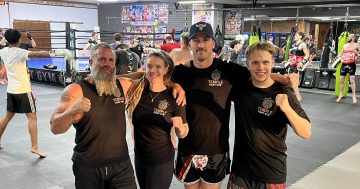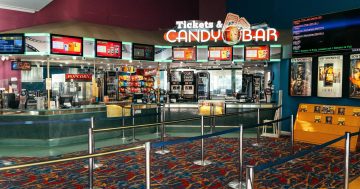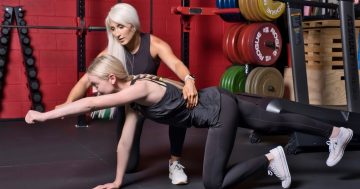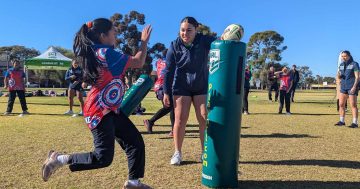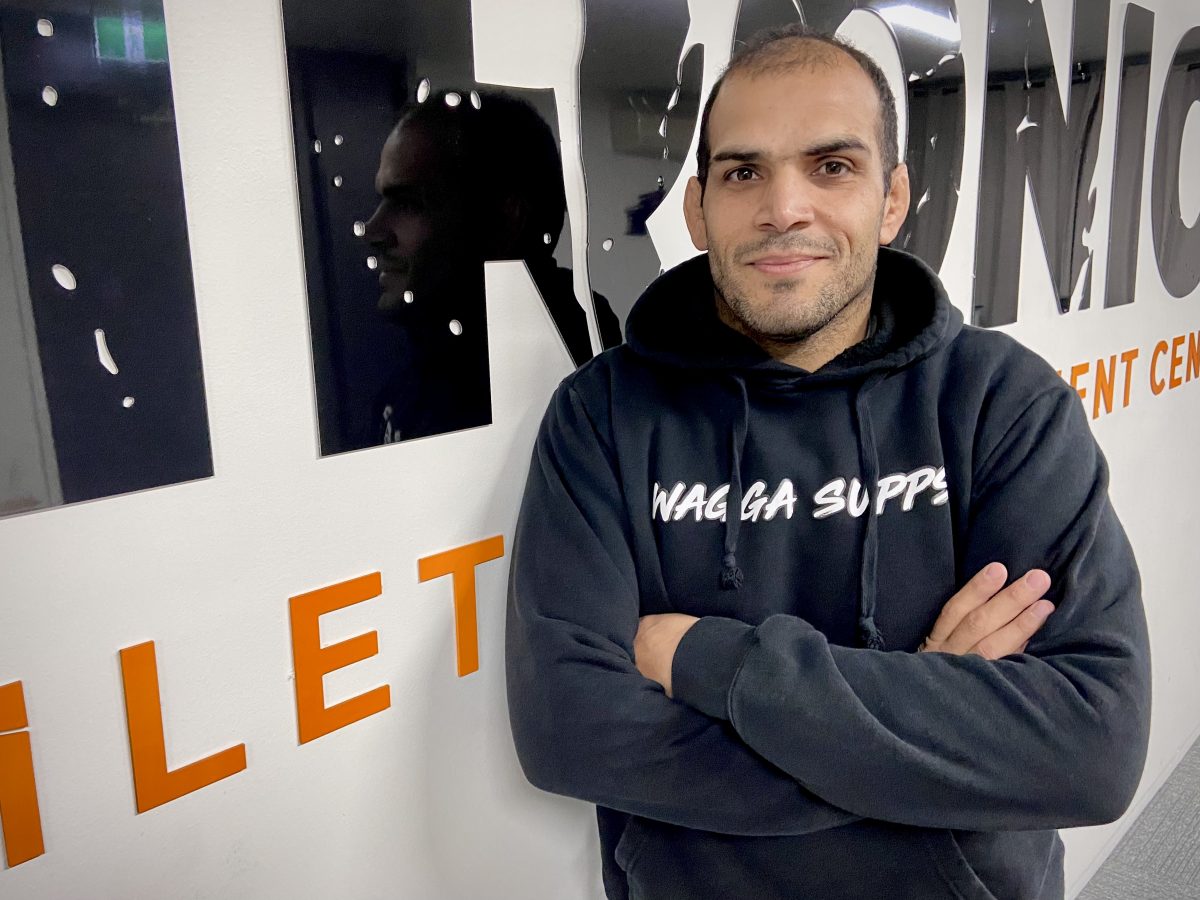
Persian wrestler Mohsen Haidary has found a new home in Wagga. Photo: Chris Roe.
Wagga’s wrestling coach Mohsen Haidary is a survivor.
“I came to Australia in late 2012. I’m a refugee in this country. I came here on a boat,” he says matter of factly.
Mohsen is Persian and moved to Wagga a little over a year ago with a temporary protection visa requiring refugees to live, work or study in a regional area.
He is quietly spoken but his powerful frame, strong hands and cauliflower ears give away his background as an athlete.
In July last year, the former Iranian champion established the Wagga Wrestling Club to share his passion for the sport.
“Everything I have has come from wrestling, especially in Australia,” he says.
“My partner, my little baby, friends – I have lots of friends everywhere; Melbourne, Sydney, Brisbane, Perth, Adelaide, Canberra.”
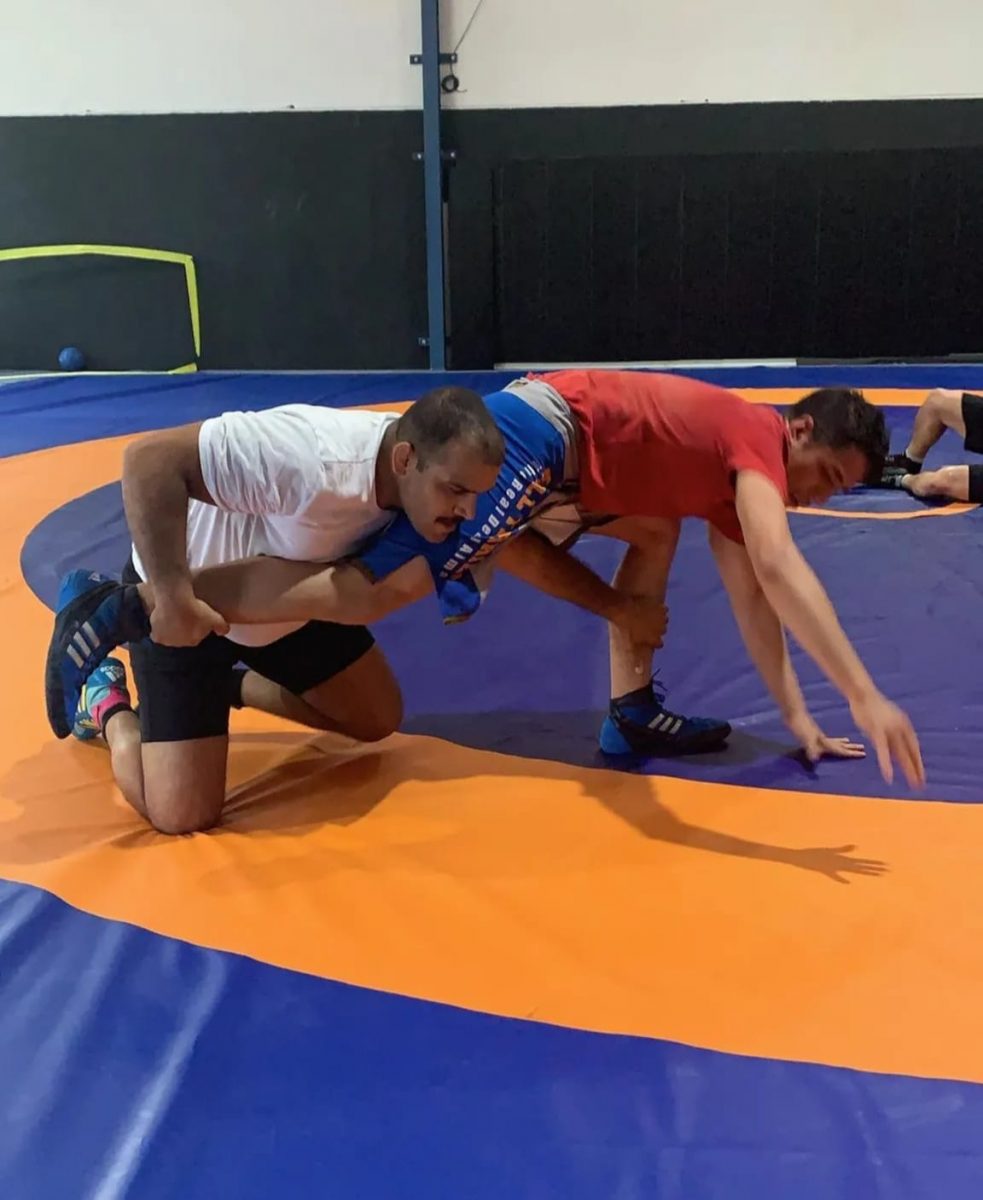
Wagga Wrestling Club will celebrate its first anniversary in July. Photo: Supplied.
Mohsen began wrestling with his father at 11 years old, learning freestyle before progressing to the more formal Greco-Roman style and competing at the national level.
But life took a turn when he was recruited into the Iranian army.
The 2003 US invasion of neighbouring Iraq led to ugly scenes on the border and Mohsen says orders were given that he refused to follow.
“I threw down my gun and went away,” he says.
“They put me in jail but later I escaped.”
Mohsen fled to Doha and then to Indonesia where he spent a year before making the dangerous journey by boat to Australia.
“I landed on Christmas Island after eight days on the ocean,” he says.
“After two weeks the navy took us to Perth, which was a very bad time, and they kept us in Yongah Hill Detention Centre for eight months.”
In 2013 with just a few words of English, Mohsen was able to move to Melbourne where he was quick to join a local Mixed Martial Arts (MMA) gym.
He soon put his wrestling skills to good use as a trainer and even worked with the NRL’s Melbourne Storm alongside wrestling coach John Donahue.
He met his wife Ilina through a Muay Thai boxing club and together they moved to Wagga with their baby daughter.
Interest in wrestling has grown in Australia in the last decade with the booming popularity of MMA and the introduction of wrestling coaches in football.
“Wrestling is very useful for many different sports. For rugby it’s good, for AFL it’s good,” Mohsen explains.
“In the MMA, if you look at all the champions at the moment, 80 per cent of them are wrestlers.”
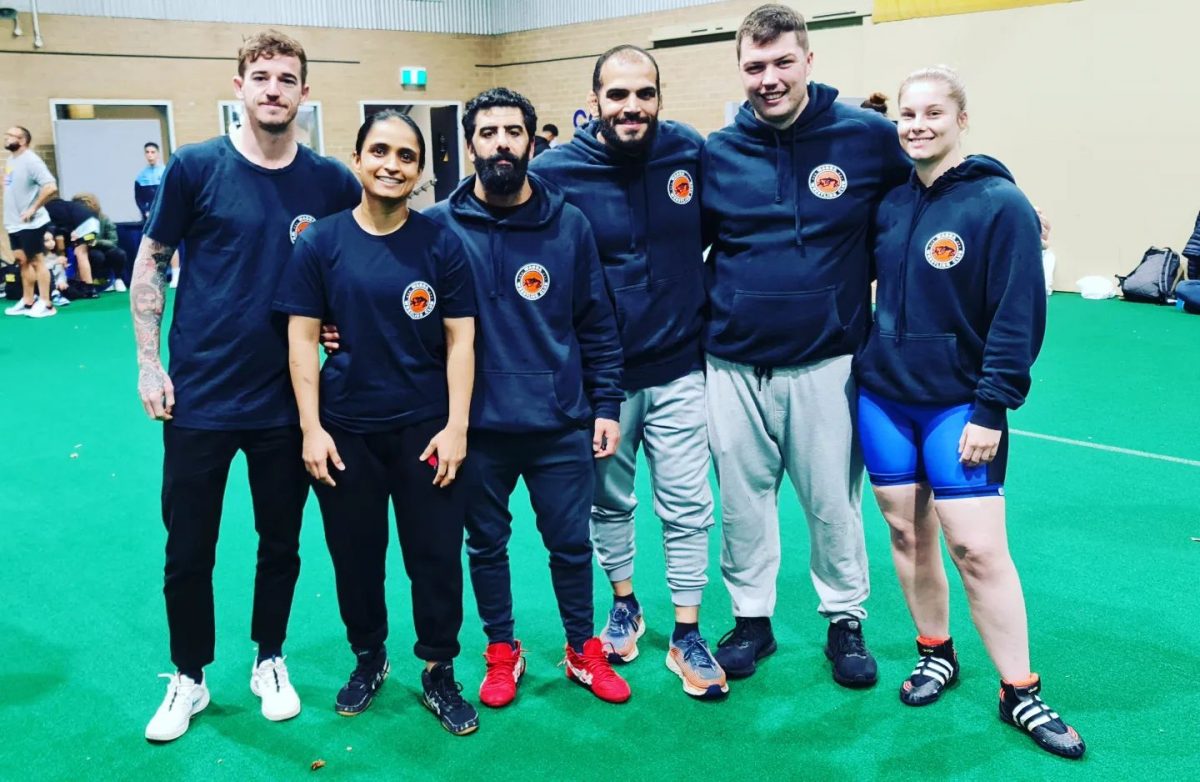
Mohsen’s students have already tasted success at tournaments. Photo: Supplied.
With no one teaching the sport in Wagga, Mohsen teamed up with a local Jujitsu trainer, rented a space at Chronicle gym in Turvey park and soon had a score of committed students.
Within just a few short months they were not only competing at events in Canberra, Sydney and Melbourne but winning medals.
Mohsen is already dreaming big for the fledgling Wagga club.
“Wagga Wagga has very strong people, especially the kids; I find they are very strong,” he says.
“I want to expand and bring the competition (Australian National Wrestling Championships) here at the end of the year.”
Planning is already underway to host a national event in the city and there is growing interest in the broader wrestling community.
“When we went to Sydney and they saw our shirts with Wagga Wrestling Club, people would say to me ‘wow, that’s cool’, and they would ask me how long we had had wrestling,” he says.
“We have a big spot at the back here and I showed it to the president (of Wrestling Australia) via video and he has accepted, so we’re going to have the competition in the summer in November.
“Around 150 wrestlers are going to come, but the people coming are almost 400.”
Mohsen says the club’s Facebook page is the place to get information on the event as the time draws nearer and in the meantime, the gym is open to anyone who wants to learn.
“Wrestling is my life. It has given me everything,” he says.







